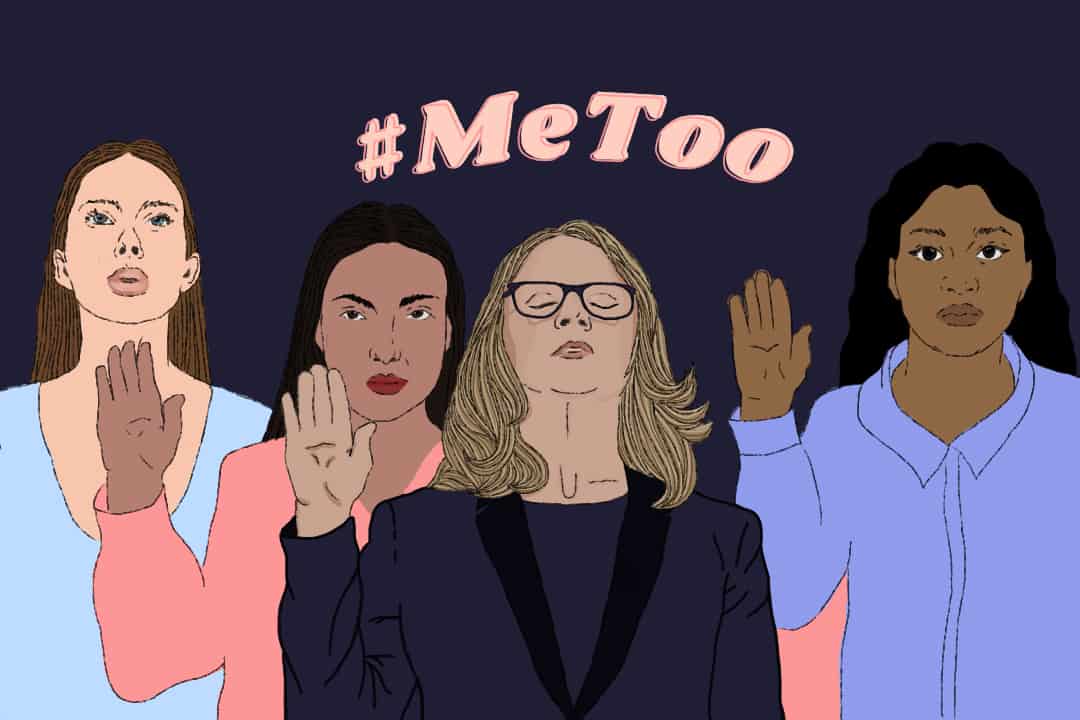Content warning: This article discusses sexual violence and patterns of sexual misconduct on university campuses.
The social movement #MeToo, which began in 2017, prompted women around the world to share their experiences of sexual assault or harassment. Many of these incidents occurred on university or college campuses. After the initiators of this movement began to voice their experiences with sexual assault, even more survivors stepped forward to share their own accounts of harassment.
Countless up-to-date studies show sexual assaults are common on campus. The American Association of University Women’s 2016 analysis reveals that despite the commonness of sexual assaults on campus, 77 per cent of United States campuses report zero incidents of sexual assault and 89 per cent of colleges and universities failed to disclose any reported incident of rape. This phenomenon — present before and still remaining after the dawn of #MeToo — demonstrates the culture of silence that survivors face.
Applying the ideas of game theory, a study by professors at the Rotman School of Management dove into the strategic complications faced by survivors of sexual misconduct as they decide what and when to report. This effect, as studies demonstrate, can be modeled by the economic concept of game theory.
New ground with game theory
In their November 2022 paper in the American Economic Journal: Microeconomics, Ing-Haw Cheng, an associate professor of finance at U of T’s Rotman School of Management, and Alice Hsiaw, an associate professor of economics at Brandeis University, used game theory to model the decision-making of survivors who report sexual misconduct.
Game theory is a theoretical framework of strategy, originally created to explain and solve economics problems using logic games but now used to model much more complicated problems. It’s a framework designed to optimize the outcomes of decisions in different scenarios. The main focus of the study is how individuals make decisions about reporting sexual misconduct given the responses of other participants in the situation.
The paper claimed individuals tend to underreport sexual misconduct if and only if the case affecting them involves multiple victims. It showed that, in cases involving multiple victims, these survivors face a coordination problem and strategic uncertainty about whether others will also report the misconduct. Coordination problems and strategic uncertainty are hallmarks of game theory scenarios. Survivors must take others’ decisions into account as they attempt to mitigate the possibility of retaliation from their harassers.
In a Rotman press release, Cheng said, “Uncertainty over whether others will come forward can be so strong enough that no one will report even when misconduct is widespread.” Cheng’s comments provide insight into one of the reasons behind such drastic underreporting of sexual misconduct.
In a case where every survivor is aware of others’ bad experiences, fear of retaliation may still motivate them to not report unless others report as well. The paper’s model suggests that the rate of reporting improves when individuals are aware of others reporting problematic behavior or if the behavior is already penalized.
The matter with men mentors
From anecdotal and survey evidence in the paper, men in senior positions are more reluctant to mentor or meet women in junior positions alone concerning the possibility of subsequent accusations — especially in business leadership.
This reluctance can significantly impact a woman’s career development, as mentorship and networking opportunities can be crucial for career advancement. Without access to these opportunities, women may find it more difficult to develop the skills and connections needed to advance in their careers.
The paper suggests that when mentors who are more likely to commit sexual misconduct opt to take on fewer new mentorship roles, survivors are less likely to report cases of sexual misconduct because they’re unaware of other misconduct cases and unlikely to find corroboration of their experiences. This dilemma is reinforced by other situational coordination problems among individuals reporting misconduct, which the paper explores in more depth.
The importance of speaking out
Cheng and Hsiaw’s model can have far-reaching effects for the #MeToo movement. Their paper demonstrated that publicizing broader awareness coordinated the beliefs of the victims. By spreading information and encouraging everyone to speak up, more individual victims believe others will report as well, therefore resulting in a higher rate of reporting.
“We can use this as a basis for a sensible conversation in an emotionally charged topic,” said Cheng in the press release. The fact that economic models can be applied to social problems opens up new perspectives for researchers to investigate, and modeling cases of sexual misconduct using game theory suggests many future topics for exploring solutions to dilemmas that survivors are currently facing.


